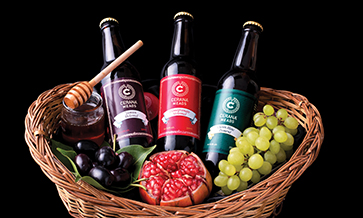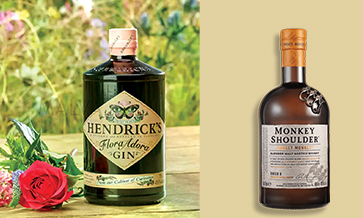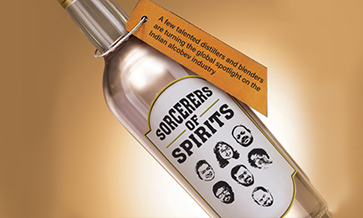Priyanka Save is also a Green Building professional and has been working in this space for almost 12 years, including energy audits in the supply chain and in manufacturing.
“Fermentation is something that leads to discoveries. But in brewing, water consumption is really high – even after we have treated water to reduce wastage. How are we tackling it as part of sustainable solutions at breweries?” she asked.
Narayan feels that sustainability is a mindset. During his stay and brewing studies in the US he came across eco-conscious breweries using only 4 litres for of water for every litre of beer they produced.
“However, in a brewery in Portland, they were cooling even their fermentation tanks with water and letting it into the drain because water there is abundant and literally free,” he recalled.
“You have to really care in order for you to make a difference. Even the land on which a brewery is built should be made a better place than when it was found,” he said.
Closed loop
Geist Brewing has installed a rainwater harvesting system right from the outset. It has “a really expensive” sewage treatment and effluent treatment plant to adhere to local pollution control regulations.
The brewery also has a DTRO system which results in safe and crystal-clear water that is used for washing dishes in the Beer Garden kitchen. The sewage water is treated with neem and moringa seeds, is organically rich, and is supplied to a farmer, who grows and supplies vegetables to the Beer Garden.
The sludge goes through a screw press and used for composting. “All this is expensive; it’s not easy to do; and it’s a process of continuous iteration. But this is a mindset that you need to have in order to implement these kinds of things,” Narayan added.
But what about the water-intensive agricultural practices of growing barley or hops? “Every time you buy an agricultural commodity from abroad you’re effectively importing water. We’ve done a bunch of experiments, and the game is always to find the most that we can use from within the country,” Narayan added.
Waste matters
Be it fermentation or distillation, fruit or grain, there’s waste generation at the end of it. What measures could be taken, Priyanka asked, to reduce that waste, or to offset it and reuse it?
According to Dr. Bhavanishankar, distilleries also consume about 10 litres of water for every litre of spirits. But as technology evolves there are different ways of treating this and recovering the fuel from that so that is called bio-methanation.
This effluent is very high in organic matter, low in pH, and is hot (90-degrees Centigrade) because it is coming out of the distillation unit. “The foremost thing is to recover that heat by passing it through a heat exchanger to the boiler,” he said.
Then there is a highly acidic effluent that is fed into a bio-methanation reactor, where it is treated with anaerobic bacteria to generate bio-gas rich in methane (55%), CO2 (44%) and traces of sulphur dioxide and hydrogen sulphide.
“There is another technology where, with some additional fuel, one can generate high pressure dry steam. This can be used in a steam turbine to generate electricity to meet the electricity requirement in a distillery,” he added.
A fresh example of conversion of food waste back into food for human consumption comes from a new venture. Elizabeth Yorke informed the audience that Saving Grains is an initiative that is looking to up-cycle brewers’ spent grain and convert it into flour fit for human consumption.
The flour has about 46 fibres about 23 proteins and less than 0.1% gluten. It has a lot of enzymes and can be called a “health food”.
“But the idea is to be able to capture the deliciousness and taste in the product, to make chapatis to which you can add some spent grain flour to increase its nutritive value,” Elizabeth said.
For the full panel discussion, visit Brews&Spirits Expo on YouTube.
https://www.youtube.com/watch?v=cFtb4GDvKXs&t=3s













